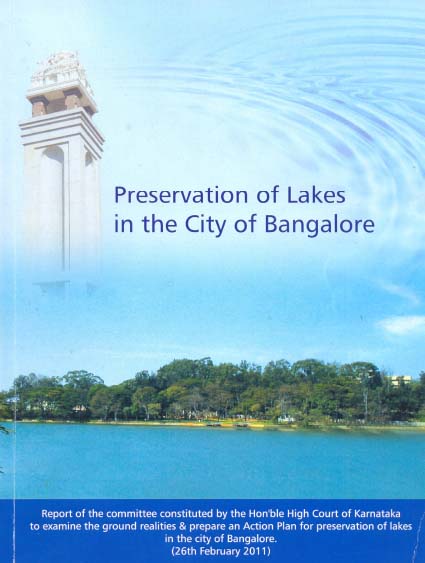/topics/urban-water
Urban Water
Proposal for groundwater recharge in National Capital Region - A report by SK Sharma and Green Systems
Posted on 22 Apr, 2011 11:53 AMIt also explains the various laws that have been put in place to increase groundwater replenishment.
Groundwater and artificial recharge investigations, at the site of the Devi Rasa Boutique Hotel in Amer, Rajasthan - A report by Green Systems
Posted on 22 Apr, 2011 11:43 AMThe consultants, Green Systems, have conducted an indepth study of various parameters which include hydro-geology and climatic conditions to come up with a set of proposals for the hotel. To come up with their suggestions the consultants also make use of technologies like remote sensing, GIS and Vertical Electrical Sounding (VES).
The Bangalore Water Supply and Sewerage (Amendment) Act (2011)
Posted on 21 Apr, 2011 09:23 PM. Under the amendment the Bangalore Water Supply and Sewerage Board (BWSSB) is empowered to install rainwater harvesting systems if people do not comply and recover the cost from them.
Development of training module for water safety plan in urban areas - A document by ESCI
Posted on 20 Apr, 2011 03:48 AMA Water Safety Plan (WSP) is an improved risk management tool designed to ensure the delivery of safe drinking water. It identifies hazards, means to control them, means and actions to identify loss of control and its restoration. It comprises system assessment and design, operational monitoring and management plans (including documentation and communication). Water quality guidelines have been issued by the WHO.
Water safety plan: A manual for pilot study areas of Hyderabad
Posted on 20 Apr, 2011 02:03 AMThe most effective means of consistently ensuring the safety of drinking water supply is through the use of a comprehensive risk assessment and management approach, that encompasses all steps in water supply from catchment to consumer. Such approaches are called Water Safety Plans (WSPs).
The aim of a WSP is to organize and systematize records of management practices applied to drinking water and to ensure workability of such practices to organized drinking water supply.
Assessing acute Gastroenteritis risks associated with water quality and sanitation in Hyderabad city - A paper by the Institute of Health Systems (IHS)
Posted on 19 Apr, 2011 11:35 PMThe quality of drinking water is a vital element of public health and well-being. The most effective means of consistently ensuring the safety of a drinking-water supply is through the use of a comprehensive risk assessment and risk management approach that encompasses all steps in water supply from catchment to consumer.
WHO guidelines on water quality term these approaches as water safety plans (WSPs), developed to organize, systematize and apply management practices in drinking-water quality.
Bhisti community in Kolkata usurped by taps - A film from Video Volunteers
Posted on 18 Apr, 2011 12:15 PM
Landmark initiative of Karnataka High Court stops the destruction and degeneration of lakes of Bangalore – ESG's submission and the report of the Committee constituted by the Court
Posted on 15 Apr, 2011 11:33 AM The Hon'ble High Court of Karnataka in a recent landmark ruling (March 2011) accepted the report of the Karnataka High Court Legal Services Committee, which was constituted by it to examine the ground realities and prepare an action plan for the preservation of lakes in the city of Bangalore.
The Hon'ble High Court of Karnataka in a recent landmark ruling (March 2011) accepted the report of the Karnataka High Court Legal Services Committee, which was constituted by it to examine the ground realities and prepare an action plan for the preservation of lakes in the city of Bangalore.
The issue dates back to 2008 when the Environment Support Group (ESG) filed a Public Interest Litigation challenging the privatisation of lakes in Bangalore by the Lake Development Authority. There were two key prayers in the PIL.
One was seeking "necessary directions directing (the Government) to frame a scheme for the effective administration of lakes and tanks in consonance with the Principle of Intergenerational Equity and Public Trust Doctrine, in line with the recommendations of the Lakshman Rau Committee and also in conformance with principles for wetland conservation and management as laid down by the Union Ministry of Environment and Forests".
Death of a river - On the Yamuna in Delhi - Article from Kafila
Posted on 15 Apr, 2011 08:52 AMThis was first presented as a paper in a seminar on “The River” organised by the Max Muller Bhawan on 11 and 12 December 2010. Photo credits: Gigi Mon Scaria, Himanshu Joshi and Sohail Hashmi.
Urban lakes - A series of current articles from Down To Earth magazine
Posted on 14 Apr, 2011 07:11 PMDelhi
On June 7, 2000, the Delhi Jal Board and the Municipal Corporation announcement that they would create 150 ponds for rainwater harvesting. TAPAS, a non-governmental organisation, approached the Delhi High Court on June 22, 2000, to force government authorities to improve water availability and quality in the national capital. It sought restoration of neglected lakes and depressions in the city as well as the implementation of the announcement made by the authorities.
Hyderabad
The Andhra Pradesh High Court is hearing three different public interest petitions to protect the Hussainsagar lake. One seeks to prevent construction on or around the lake or its catchment area. Another aims to prevent heavy siltation due to annual immersion of idols in the lake during religious occasions.





